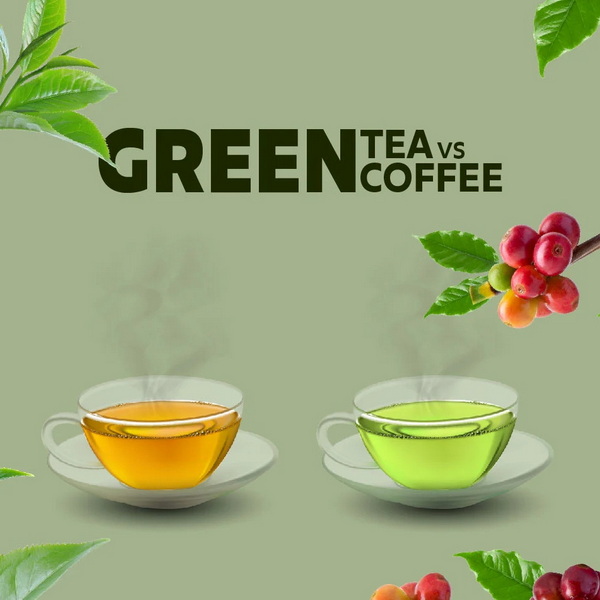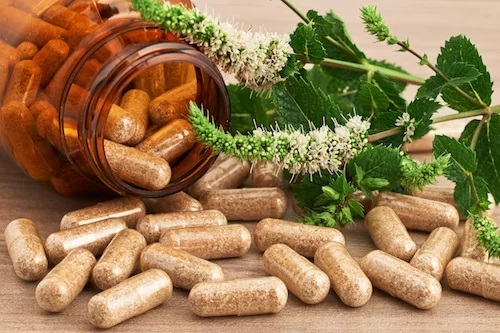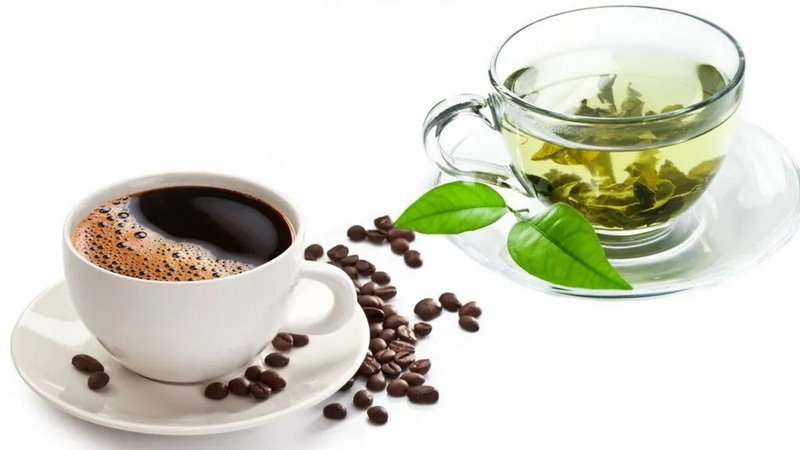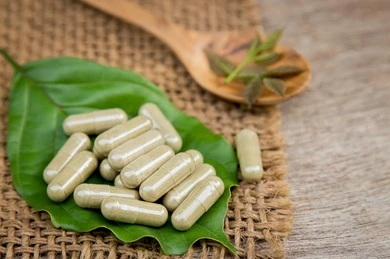Content Menu
● Understanding Green Tea Extract
>> Caffeine Content in Green Tea Extract
● Factors Influencing Caffeine Content
● Health Benefits of Caffeine in Green Tea Extract
● Recommended Dosage
>> How to Incorporate Green Tea Extract into Your Routine
● Potential Side Effects
● Choosing the Right Green Tea Extract
● Green Tea vs. Green Tea Extract
● Conclusion
● FAQ
>> 1. How much caffeine is typically found in green tea extract capsules?
>> 2. Can I take green tea extract on an empty stomach?
>> 3. What are the main health benefits of green tea extract?
>> 4. Are there any risks associated with taking too much green tea extract?
>> 5. Should I consult a doctor before taking green tea extract?
● Citations:
Green tea extract capsules have gained popularity due to their potential health benefits, including weight loss, improved metabolism, and antioxidant properties. One of the key components of green tea extract is caffeine, which can vary significantly among different brands and formulations. Understanding the caffeine content in these supplements is essential for consumers, especially those sensitive to caffeine or looking to manage their intake.

Understanding Green Tea Extract
Green tea extract is derived from the leaves of the Camellia sinensis plant and is known for its high concentration of antioxidants, particularly catechins. The most notable catechin is epigallocatechin gallate (EGCG), which is linked to various health benefits. Green tea extract can be consumed in several forms, including capsules, powders, and liquids.
The extraction process typically involves steeping the leaves in water or using solvents to isolate the active compounds. This concentrated form allows individuals to reap the benefits of green tea without having to drink large quantities of tea.
Caffeine Content in Green Tea Extract
The caffeine content in green tea extract capsules can vary widely depending on the brand and formulation. Here are some examples:
- NOW Foods: 32 mg of caffeine per 400 mg of green tea extract.
- Jarrow Formulas: 40 mg of caffeine per 500 mg of green tea extract.
- Nature's Truth: 200 mg of caffeine per serving with 20 mg of green tea extract.
- Zenwise Labs: 0 mg (uses decaffeinated leaves).
As you can see, some products contain minimal caffeine (as low as 0 mg), while others can exceed 200 mg per serving. This variability makes it essential for consumers to read labels carefully.
Factors Influencing Caffeine Content
Several factors influence the caffeine content in green tea extract capsules:
- Type of Leaves Used: Different varieties of green tea leaves contain varying amounts of caffeine. For instance, younger leaves typically have higher caffeine levels compared to older leaves.
- Extraction Method: The method used to extract the active compounds can also affect caffeine concentration. Some methods may yield a higher concentration of caffeine than others.
- Processing: The way the leaves are processed post-harvest can impact their caffeine content. For example, steamed green teas often retain more caffeine than pan-fired varieties.
Health Benefits of Caffeine in Green Tea Extract
Caffeine is a natural stimulant that can enhance alertness and improve cognitive function. In moderate amounts, it may offer several benefits:
- Increased Energy: Caffeine can boost energy levels and enhance physical performance, making it a popular choice among athletes. Studies have shown that consuming caffeine before exercise can improve endurance and reduce perceived exertion.
- Weight Management: Research suggests that caffeine may help increase metabolic rate and fat oxidation, potentially aiding weight loss efforts. It stimulates thermogenesis, which helps burn calories even at rest.
- Improved Mood: Moderate caffeine consumption has been linked to improved mood and reduced risk of depression. It may enhance dopamine signaling in the brain, contributing to feelings of well-being.
- Enhanced Cognitive Function: Caffeine may improve focus, attention, and reaction time. Studies indicate that it can enhance short-term memory and overall cognitive performance.
However, excessive intake can lead to side effects such as insomnia, anxiety, and increased heart rate.

Recommended Dosage
The recommended dosage for green tea extract varies based on individual needs and health goals. Generally, a daily intake of 250 to 500 mg is suggested. It's important to take these supplements with food to minimize potential gastrointestinal side effects and enhance absorption.
How to Incorporate Green Tea Extract into Your Routine
Incorporating green tea extract into your daily routine can be straightforward:
- With Breakfast: Taking your capsule with breakfast can help mitigate any potential stomach upset while providing an energy boost for the day ahead.
- Pre-Workout: Consuming green tea extract about 30 minutes before a workout may enhance your performance due to its caffeine content.
- As a Snack Substitute: If you find yourself reaching for sugary snacks during the day, consider taking a green tea extract capsule instead for a healthier option that also boosts metabolism.
Potential Side Effects
While green tea extract is generally considered safe for most people when taken in moderation, there are potential side effects associated with its caffeine content:
- Caffeine Sensitivity: Individuals sensitive to caffeine may experience symptoms such as insomnia, jitteriness, or increased heart rate. It's advisable for these individuals to choose decaffeinated options or lower-caffeine products.
- Liver Health Risks: High doses of green tea extract have been linked to liver damage in rare cases. It's crucial to adhere to recommended dosages and consult a healthcare provider if considering high-dose supplements.
- Gastrointestinal Issues: Some users report experiencing nausea or digestive discomfort when taking green tea extract on an empty stomach. Taking it with food can help alleviate these symptoms.

Choosing the Right Green Tea Extract
When selecting a green tea extract supplement, consider the following factors:
- Caffeine Content: Check the label for specific caffeine amounts if you are sensitive or monitoring your intake.
- EGCG Levels: Look for products standardized for EGCG content to ensure you receive the desired health benefits.
- Quality Assurance: Choose brands that provide third-party testing for purity and potency. This ensures that what is on the label matches what is in the product.
- Formulation: Some products may include additional ingredients like vitamins or other herbal extracts that could enhance their effectiveness or provide additional benefits.
Green Tea vs. Green Tea Extract
When considering whether to consume traditional green tea or opt for an extract supplement, there are several factors to weigh:
| Aspect | Green Tea | Green Tea Extract |
| Caffeine Content | Lower (30-50 mg per cup) | Higher (varies widely) |
| Antioxidant Concentration | Moderate | Higher due to concentration |
| Caloric Content | Low (2 calories per cup) | Typically zero |
| Preparation Time | Requires brewing | Convenient capsule form |
| Additional Benefits | Hydration from liquid | Concentrated dose of active compounds |
Both forms have their advantages; however, individuals seeking higher doses of antioxidants or those who prefer convenience might lean towards extracts.
Conclusion
Green tea extract capsules offer a concentrated source of beneficial compounds found in green tea, including caffeine. The caffeine content varies significantly across different products, ranging from zero to over 200 mg per serving. Understanding this variability is crucial for consumers looking to manage their caffeine intake while enjoying the health benefits associated with green tea extract.
Incorporating green tea extract into your routine can provide numerous health benefits when used responsibly. Always consult with a healthcare professional before starting any new supplement regimen, especially if you have existing health conditions or concerns about caffeine consumption.

FAQ
1. How much caffeine is typically found in green tea extract capsules?
The caffeine content can range from 0 mg to over 200 mg per serving depending on the brand. Most common products contain between 25 mg and 50 mg per capsule.
2. Can I take green tea extract on an empty stomach?
It is not recommended to take green tea extract on an empty stomach as it may increase the risk of gastrointestinal side effects and liver toxicity due to high concentrations of EGCG.
3. What are the main health benefits of green tea extract?
Green tea extract is known for its antioxidant properties, potential weight loss benefits, improved cognitive function, and enhanced energy levels due to its caffeine content.
4. Are there any risks associated with taking too much green tea extract?
Yes, excessive consumption can lead to side effects such as insomnia, anxiety, increased heart rate, and rare cases of liver damage.
5. Should I consult a doctor before taking green tea extract?
Yes, it's advisable to consult a healthcare professional before starting any new supplement regimen, especially if you have existing health conditions or are sensitive to caffeine.
Citations:
[1] https://www.livestrong.com/article/186702-how-much-caffeine-is-in-green-tea-extract/
[2] https://pubmed.ncbi.nlm.nih.gov/16506807/
[3] https://renew.org/video/?vid=zEUJ91-G6we
[4] https://www.webmd.com/vitamins/ai/ingredientmono-960/green-tea
[5] https://www.medicalnewstoday.com/articles/269538
[6] https://www.vumc.org/poison-control/toxicology-question-week/march-12-2021-what-are-adverse-effects-green-tea-extract
[7] https://www.caffeineinformer.com/caffeine-content/green-tea-extract
[8] https://www.youtube.com/watch?v=eMuE16vLV_s
[9] https://www.healthline.com/nutrition/10-benefits-of-green-tea-extract
[10] https://www.zhounutrition.com/blogs/the-greatness-files/green-tea-extract-q-a
[11] https://www.drugs.com/mtm/green-tea.html
[12] https://www.drugs.com/npp/green-tea.html
[13] https://www.elo.health/articles/green-tea-extract-supplements/
[14] https://www.naturewise.com/products/green-tea-extract
[15] https://hammernutrition.com/blogs/endurance-news-weekly/green-tea-extract-in-fully-charged
[16] https://bioayurveda.com/products/green-tea-capsule
[17] https://www.healthline.com/nutrition/10-benefits-of-green-tea-extract
[18] https://www.alamy.com/stock-photo/green-tea-extract.html
[19] https://www.webmd.com/vitamins/ai/ingredientmono-960/green-tea
[20] https://www.istockphoto.com/de/bot-wall?returnUrl=%2Fde%2Fphotos%2Fgreen-tea-extract
[21] https://www.youtube.com/watch?v=A7tjlpYdUGU
[22] https://www.healio.com/news/gastroenterology/20241111/video-green-tea-extract-turmeric-among-supplements-associated-with-liver-injury
[23] https://www.urmc.rochester.edu/encyclopedia/content?contenttypeid=19&contentid=greenteaextract
[24] https://www.webmd.com/drugs/2/drug-76714/green-tea-leaf-extract-oral/details
[25] https://blog.invitehealth.com/green-tea-our-most-common-questions/
[26] https://my.clevelandclinic.org/health/drugs/20553-green-tea-oral-dosage-forms































